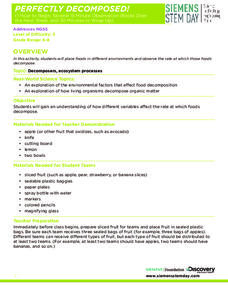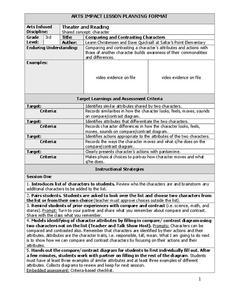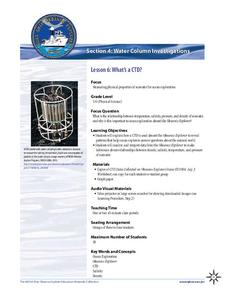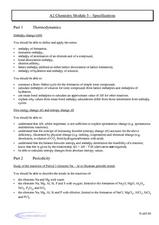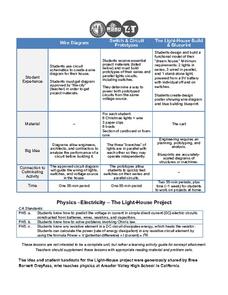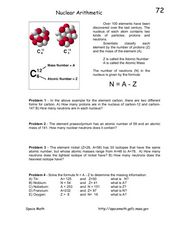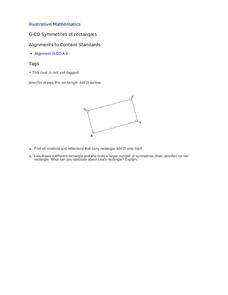Discovery Education
Perfectly Decomposed!
We all know someone who won't eat the banana with a brown spot, the grape with a dimple, and the apple with a bruise. Scholars use different fruits to explore what happens when fruits really start to decompose. They set up an experiment...
Purdue University
Design of a Door Alarm
How does electricity work? Budding scientists explore the concepts of electrical currents and open and closed circuits with class discussion and a hands-on activity using a battery to turn on a light bulb. Learners also make predictions...
Curated OER
The Parachute
Students discuss parachutes and write a procedure to determine the effect of different size parachutes and different masses on the time it takes the masses to fall. They record all their data from their experiment then write three...
Perkins School for the Blind
Mixtures and Solutions
Mixtures and solutions are different; one can be separated fairly easily and the other cannot. This hands-on experiment was written specifically for learners with visual impairments or blindness. They will use lemonade and trail mix to...
Center for Learning in Action
Density
Explore the concept of density within states of matter—gases, liquids, and solids—through a group experiment in which young scientists test objects' texture, color, weight, size, and ability to sink or float.
Florida Department of Health
Understanding the Risk of Substance Abuse Unit
Teenage brains are different! Understanding that the teenage brain is still developing and thus more impacted by substance abuse is the key concept in a three-lesson high school health unit. Participants learn about how the brain and...
Curated OER
Exploring Learned and Innate Behavior
Students explore the differences between learned and innate behavior among humans and monkeys. They complete an assignment and read articles about two studies, which used similar test methods to show that infants and monkeys share an...
Curated OER
Character Study
Third graders work in pairs to choose two characters and find their similarities and differences. For this character lesson, 3rd graders compare characters by their actions and attributes. Students individually complete a graphic...
Wordpress
Greetings - How and Where Might We Greet Someone Using Spanish?
Use the Total Physical Response (TPR) strategy to practice Spanish greetings as well as where and who question prompts. Comprised of five days, this short unit is taught completely in Spanish with call-and-response exercises, group...
University of Colorado
Looking Inside Planets
Researchers use scientific data to understand what is inside each of the planets. The first in a series of six, this instructional activity builds off of that concept by having pupils use a data table to create their own scale models of...
NOAA
What's a CTD?
Why are the properties of the water important when exploring the ocean? Young scientists discover the tools and technology used in deep sea exploration in the fourth installment in a five-part series. Groups work together to examine...
Curated OER
Chemistry Module 5 - Specifications
While this resource does not provide problems for chemistry learners to solve, it outlines skills that they should have and concepts that they should grasp. Topics include thermodynamics, periodicity, redox equilibria, transition metals,...
Curated OER
Principles of Square Roots Lesson Plan
Middle and high schoolers investigate all the different places in math that square root is present. In this geometry lesson, pupils discuss square roots as it relates to a right triangle and construction. They go over altitude, rise,...
Curated OER
Food Pyramid Relay Race
Students explore healthy eating habits by conducting a physical food challenge. In this food pyramid lesson, students identify the main concepts behind the food pyramid and what choices they should be making with their food intake....
Trash For Teaching
The Light-House Project
Groups work together to design a lighthouse, from designing and drawing the wiring diagram, to creating prototypes of the switch and circuit, to envisioning and building a scale model along with a blueprint. By including different...
Virginia Department of Education
Planet Line-Ups
Should Pluto be considered a planet or a dwarf planet? Scholars research planets in our solar system to understand their similarities and differences. It also includes memory activities related to the order of the planets.
Curated OER
Addition Polymerization: Preparation of Polystyrene Using Two Types of Initiators
Advanced chemistry classes compare the polymerization of styrene using two different initators: benzoyl peroxide and aluminum chloride. Once they synthesize polystyrene, they compare the two producet for melting point and density. There...
Curated OER
Examining Abstinence
Highschoolers investigate the concept of abstinence and how it is considered the safest expression of teen sexuality. Guiding questions are used to help high schoolers through the lesson. There are many components to this lesson which...
Curated OER
Periodic Table Basics Test
The periodic table of elements is a vital tool for all chemistry apprentices and professionals alike. Here is a chance for your beginning chemists to assess their understanding of the periodic table. They list element names, symbols,...
Curated OER
Nuclear Arithmetic
In "Nuclear Arthmetic," first-time physical scientists examine atomic structure and the periodic table of elements. The are given the formula, "N = A-Z," in which N is the number of neutrons, A is the atomic mass, and Z is the atomic...
Curated OER
On The Go! Forces and Motion
Learners create a car using physics. In this forces and motion lesson, students create a car and test which changes in design change the performance of the car. Learners complete a graphic organizer with the different changes they see.
Curated OER
Symmetries of Rectangles
Learners explore mapping a rectangle onto itself using rigid motion concepts, geometric intuition and experimenting with manipulatives in a collaborative task.
NOAA
Plate Tectonics II
Mid-ocean ridges, rift valleys, island arcs, mountain ranges, earthquakes, volcanoes ... there are so many features associated with plate tectonics. The 14th installment of a 23-part NOAA Enrichment in Marine sciences and Oceanography...
NOAA
Ocean Layers I
How is it possible for ocean water to have layers? The sixth installment of a 23-part NOAA Enrichment in Marine sciences and Oceanography (NEMO) program investigates factors that cause different water densities to occur. Experiments...


